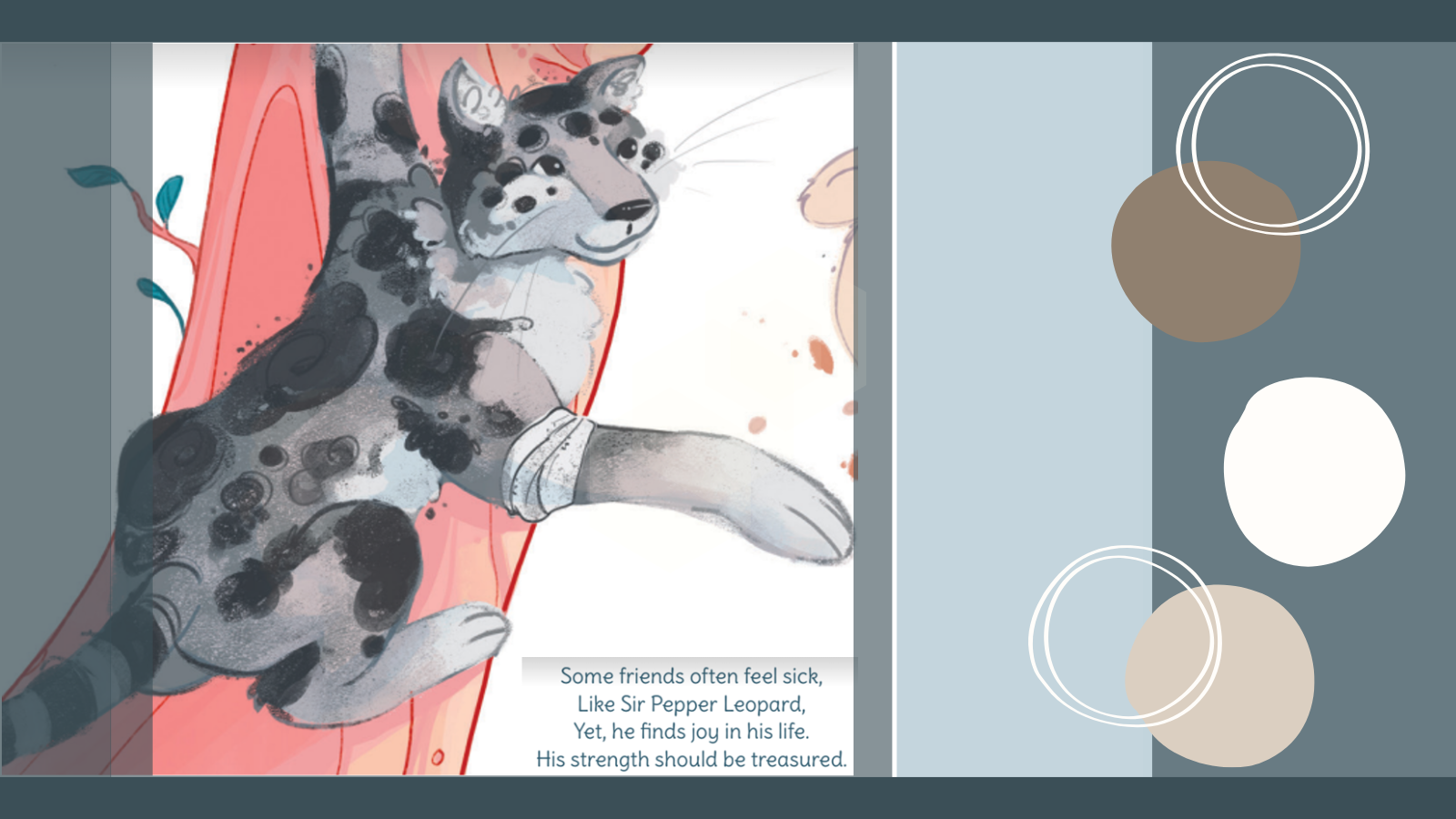Mental health and well-being—two topics that are increasingly discussed these days. Yet, it is a concept that is almost too complex to summarize in any brief, meaningful way. We have a picture of what it means to be “well.” Words such as joy, content, positive, and fulfilled come to mind. However, there’s a lot more to it. With the relatable content of my work over the last 4 few years, behavioral health and suicide prevention for Veterans, I wanted to incorporate this overarching topic of wellness into a separate project.
The backstory is as follows. My daughter, who is now 8, had a stuffed animal at age 2–3 that she named Parmesan Pig. When she was 5 years old, we were on a beach enjoying vacation, and we saw a crab, which we named Coconut Crab. And from there, it was on. We came up with multiple food-animal names, “friends” of Parmesan Pig. It was so fun and creative that I felt the next step should be to create stories for these friends. But on what topics? What are important themes for young children to think and learn about, what is the messaging—and how can it be presented, so they understand? The answer was an easy decision: the Parmesan Pig children’s book series. The Parmesan Pig series was born.
For the first book, the theme was finding “Happy.” Happiness, to me, felt like the sum of joy, content, positive, and fulfilled. The more those feelings are felt, the “happier” the person. So now the tricky part—how to center this topic in a story for children.
The first story of Parmesan Pig addresses different situations about “Happiness.” However, for this blog, I want to focus on one of the briefly mentioned characters near the end of the book—Sir Pepper Leopard. I can relate to Sir Pepper Leopard. He’s described in the book as being “sick.” You can see in his illustration (above) that there is a bandage around his arm. I have Type-1 Diabetes myself. I’m consistently sick, though not always debilitated, although at times I can be. Multiple times a year, I have that same bandage on that same arm as Sir Pepper Leopard after quarterly bloodwork. “Sick” is an everyday burden on my life (and Sir Pepper Leopard’s) …but…it doesn’t need to stand in the way of our happiness.
In that brief part of the book, my hope was to convey that happiness is not dependent on physical health. Health is a factor in happiness; sure, there is no denying that. And in some cases, the lack of health is a monumental obstacle. Health is important, and we should do everything in our power to increase it where possible. Research shows that diet and exercise both correlate with mental well-being. But health is not the ultimate goal—happiness is.
We are a passenger in our body, and our body is the vehicle that carries us through life. We hope this vehicle operates without any glitches. No injuries, no conditions, no infections, no diseases, no viruses, no breakdowns—that’s the hope, right!? But that’s not reality. So, when that vehicle of ours doesn’t cooperate or lets us down, what does that mean for the happiness of the passenger? It means we have to overcome! We need mental fortitude. We need to see that joy, content, positive, and fulfilled are all still obtainable and that these feelings are a condition of the passenger, not the vehicle.
We need to take care of that passenger and support other passengers in our circles. Happiness is a continuum. And with the right focus, resources, and support, passengers can improve their chances of feeling mostly happy, most of the time.
Do I wish I was “healthy?” Do I want my own kids to be healthy? Absolutely, and I will be doing anything and everything to support their vehicles and encourage healthy physical living. But if the choice was between a healthy vehicle or a healthy passenger…I’d choose Sir Pepper Leopard every time.


